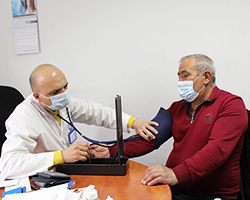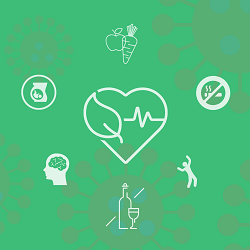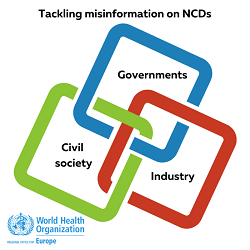Noncommunicable diseases
A relatively small group of health conditions is responsible for a large part of the disease burden in Europe. Of the six WHO regions, the European Region is the most affected by noncommunicable diseases (NCDs), and their growth is startling. The impact of the major NCDs (diabetes, cardiovascular diseases, cancer, chronic respiratory diseases and mental disorders) is equally alarming: taken together, these five conditions account for an estimated 86% of the deaths and 77% of the disease burden in the Region. WHO/Europe develops norms and standards, guidance and public health tools to help countries implement effective programmes and address risk factors.
Causes, impacts and the role of WHO/EuropeTopics in this category
Top story
 An adapted alcohol screening test will help to fight health harms in the Russian Federation and beyond
An adapted alcohol screening test will help to fight health harms in the Russian Federation and beyond
WHO/Europe has presented a new package of Russian- and English-language materials to help primary health-care workers in many countries of the eastern part of the WHO European Region to identify patients with risky drinking behaviours.
Health systems response to noncommunicable diseases
 Health systems response to noncommunicable diseases
Health systems response to noncommunicable diseases
Spotlight on care for noncommunicable diseases and COVID-19
 WHO and partners have developed a set of new materials on continuity of care for NCDs during the COVID-19 pandemic
WHO and partners have developed a set of new materials on continuity of care for NCDs during the COVID-19 pandemic
Tackling NCDs in countries

Since 2015, the Swiss Agency for Development and Cooperation has been working jointly with WHO/Europe, WHO country offices and the health ministries of individual countries to reduce noncommunicable diseases (NCDs).
More about tackling NCDs in countriesAdvisory Council on Innovation for NCDs
 WHO Regional Director for Europe’s Advisory Council on Innovation for Noncommunicable Diseases
WHO Regional Director for Europe’s Advisory Council on Innovation for Noncommunicable Diseases















